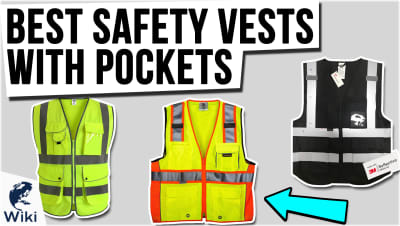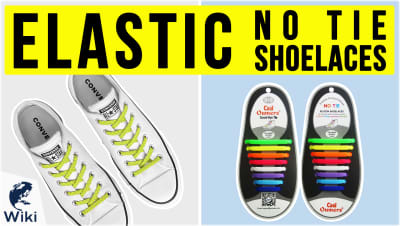5 Opportunities To Learn Hands-On About The Sea
The ocean covers the vast majority of our planet, so it makes sense that many people should feel the urge to explore and learn more about it. The institutions listed here offer a surfeit of opportunities for people of all ages and backgrounds to do just that, whether it's through programs aboard maritime vessels or resources for oceanography and marine conservation. This video was made with Ezvid Wikimaker.
5 Institutions Exploring & Teaching About the Ocean
| Name | Location | About |
|---|---|---|
| World Ocean School | Boston, Massachusetts and St. Croix, Virgin Islands | Provides programs aboard the historic Schooner Roseway, challenging a diverse population of students academically, physically, and emotionally while broadening their perspectives of the world, their communities, and themselves |
| Oliver Hazard Perry Rhode Island | Newport, Rhode Island | Provides innovative and empowering education programs at sea and ashore to promote personal growth and professional development, while raising awareness of opportunities in the maritime industry, marine trades, and defense sector for the communities of Rhode Island and Southern New England |
| California State University Maritime Academy | Vallejo, California | One of only a handful of degree-granting maritime academies in the United States, it features an annual training cruise aboard the 500-foot Golden Bear |
| TOPtoTOP Global Climate Expedition | Rotkreuz, Switzerland | Non-governmental organization conducting field-based research for universities, scientists, and research organizations, sharing examples of innovative solutions to protect and preserve the planet |
| The Woods Hole Oceanographic Institution | Woods Hole, Massachusetts | Advances knowledge of the ocean and its connection with the Earth system through a sustained commitment to excellence in science, engineering, and education, and to the application of this knowledge to problems facing society |
All Hands on Deck With World Ocean School
Fascinating Facts About the Ocean
- Oceans cover nearly three quarters of the earth's surface
- Cigarette butts are the most common form of ocean litter
- Hurricanes are formed by a combination of thunderstorms and warm ocean waters
- Sand is composed of decomposed rocks, volcanic material, organic by-products, and fish feces, among other things
- Some waves are caused by friction between wind and the water's surface and others are caused by the pull of the sun and moon
- The ocean produces over half of the world's oxygen and stores 50 times more carbon dioxide than the atmosphere
- Seventy-six percent of all U.S. trade involves some form of marine transportation
- Many medicinal products come from the ocean, including ingredients that help fight cancer, athritis, Alzheimer's disease, and heart disease
- The ocean transports heat from the equator to the poles, regulating climate and weather patterns
Where Water is Found on Earth
According to the U.S. Department of the Interior
| Location | Percentage of Earth's Water |
|---|---|
| Oceans | 97.2% |
| Ice caps & glaciers | 2.0% |
| Groundwater | 0.62% |
| Freshwater lakes | 0.009% |
| Inland seas & salt lakes | 0.008% |
| Atmosphere | 0.001% |
| Rivers | 0.0001% |
A Virtual Tour of Cal Maritime
In Depth
The ocean captivates our curiosity. Its fickle nature beckons us to understand it, with many devoting their lives to its study. Some learn how to harness its power for travel and trade, while others conduct research on its wildlife and oceanography. In no particular order, here are some places providing hands-on education about the sea and its uses in business, travel, and the sciences.
Topping off our list at #1 is World Ocean School, a non-profit organization that aims to empower students of diverse backgrounds to reach their full potentials as responsible, productive, and engaged community members. To do this, the School provides interactive and hands-on programming to students while aboard the Roseway, a 137-foot schooner built in 1925.
With the ship based in Boston, Massachusetts in the spring and summer, and in Christiansted, St. Croix in the winter, students in both regions may choose from a variety of programs. These range from single-day excursions to nine-month voyages where students remain onboard and attend classes. Academics focus on science, math, language arts, and history, while the experience of living aboard the ship teaches sail-training and community building.
These range from single-day excursions to nine-month voyages where students remain onboard and attend classes.
Coming in at #2 is Oliver Hazard Perry Rhode Island, a non-profit education foundation. The school operates aboard the SSV Oliver Hazard Perry, the largest civilian Sailing School Vessel in the United States. The organization provides innovative and empowering education programs at sea and ashore to promote personal growth and professional development.
Oliver Hazard Perry Rhode Island offers numerous programs to students, as well as to underemployed adults and veterans looking to gain working knowledge of the maritime industry. The Perry Corps, an intensive month-long program, pairs early career awareness with skills training and credentialing to support sustainable careers, ocean literacy, and civic engagement.
#3 on our list is the Cal Maritime Academy, a public university located in Vallejo, California. The school offers numerous areas of study and features the training ship Golden Bear. The boat serves as a floating classroom and laboratory where classroom concepts of marine transportation, engineering, and technology receive working practice.
The school offers numerous areas of study and features the training ship Golden Bear.
The unique Cal Maritime program combines classroom learning with applied technology, leadership development, and global awareness. School-sponsored, study-abroad trips provide those studying international business, logistics, and maritime security and policy with first-hand exposure to those practices in locations around the world. Graduates emerge from the Academy prepared for careers in a variety of fields, from politics to international trade.
At #4 is a Swiss-based non-governmental organization, known as TOPtoTOP Global Climate Expedition. Its mission is to inspire youth to become active agents in saving our planet from climate disaster. TOPtoTOP circumnavigates the planet conducting field-based research for schools, scientists, and research organizations, visiting the world's most remote regions and their native inhabitants.
The TOPtoTOP Adventure School is a free exploration-based education tool that allows young people to directly connect with the school's ongoing expedition through an online community. Students subscribe to a project in order to help solve social or environmental challenges that the organization is exploring during the global expedition.
Students subscribe to a project in order to help solve social or environmental challenges that the organization is exploring during the global expedition.
Last on our list at #5 is the Woods Hole Oceanographic Institution. The organization is dedicated to advancing knowledge of the ocean and its connection with the Earth system through a sustained commitment to excellence in science, engineering, and education. Further, WHOI aims to train future generations of ocean science leaders, by providing unbiased information that informs public policy and decision-making.
The Woods Hole Oceanographic Institution offers undergraduate, graduate, and postdoctoral programs, in addition to opportunities for guests and K through 12 students. The Institution operates numerous research vessels and ships that explore the seas and conduct oceanographic work. Students involved in the programs reside on campus in Cape Cod while embarking on short trips aboard one of the school's many vessels.















